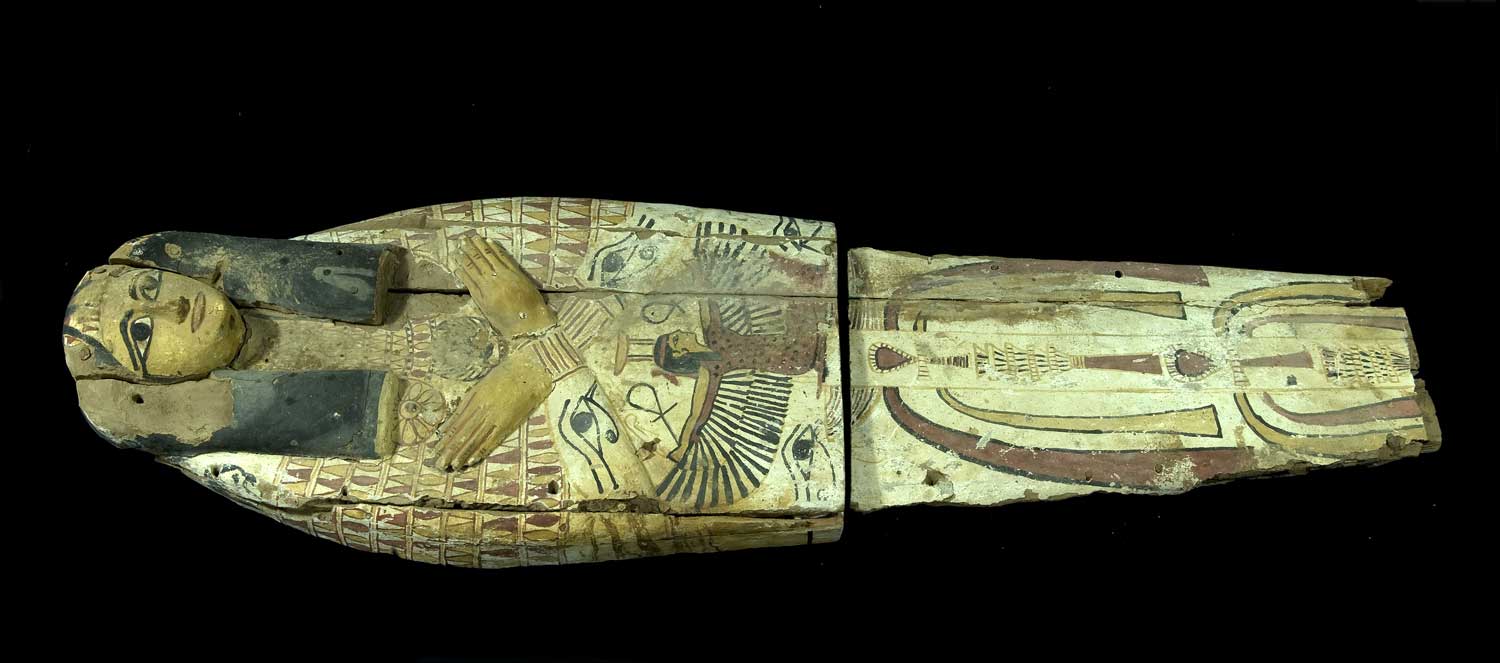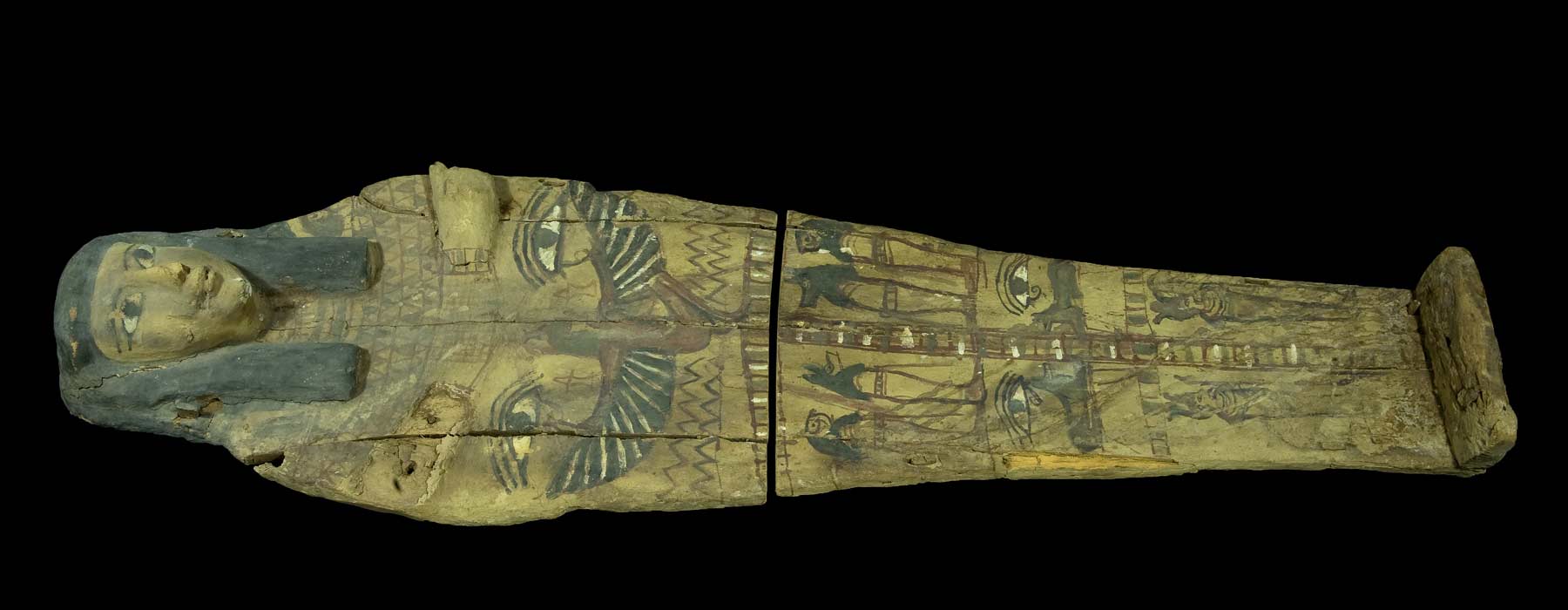'Breathtaking' Mummy Coffin Covers Seized in Israel

Two decorated covers of coffins that once contained mummies have been seized by Israeli authorities, authenticated and dated to thousands of years ago in ancient Egypt.
Inspectors of the Unit for Prevention of Antiquities Robbery found the artifacts while checking shops in a marketplace in the Old City of Jerusalem. The inspectors confiscated the items under suspicion of being stolen property.
The ancient covers are made of wood and adorned with "breathtaking decorations and paintings of ancient Egyptian hieroglyphics," says the Israel Antiquities Authority.
Researchers examined the covers with carbon dating — which looks at a radioactive form of carbon in a sample to determine its age — and other tools, finding the artifacts are authentic. They dated one of the covers to the period between the 10th and eighth centuries B.C., considered the Iron Age, and the other to between the 16th and 14th centuries B.C. (Late Bronze Age).

The researchers aren't sure exactly how the wooden covers made their way to Israel. However, the covers had been sawed into two parts (causing irreparable damage), suggesting smugglers needed to conceal the items in a standard-size suitcase, according to the IAA. Robbers may have plundered the ancient tombs in the Western Desert in Egypt; afterward, individuals may have smuggled the wooden covers from Egypt to Dubai, and then through another European country before ending up in Israel.
These types of covers typically hold a sarcophagus made of palm wood that contains the embalmed remains of a person — a mummy. Officials aren't sure what happened to the sarcophagi or the mummies. [Gallery: Amazing Egyptian Discoveries]
The confiscated antiquities highlight what is a seemingly vast black market for mummies and other antiquities. Though exact numbers are not known, some have suggested the market reaches the billions of dollars. In fact, smuggling mummies dates back to medieval times, when Egyptian mummies were ground up into a powder that was thought to have medicinal properties.
Sign up for the Live Science daily newsletter now
Get the world’s most fascinating discoveries delivered straight to your inbox.
To prevent illegal antiquities smuggling like this, a new law in Israel, which is expected to eliminate loopholes that have allowed laundering of stolen Egyptian artifacts from other countries, will take effect on April 20, according to the IAA.
"The new regulation will provide us with the tools in order to prevent the importation into the country of antiquities that were stolen or plundered in other countries, thus enabling us to thwart the international cycle of robbery and trade in stolen archaeological artifacts," Shai Bar-Tura, inspector in charge of overseeing the antiquities trade on behalf of the IAA Unit for the Prevention of Antiquities Robbery, said in a statement.
The newly confiscated wooden artifacts are currently being held under climate-controlled conditions in laboratories of the IAA in Jerusalem.
Follow LiveScience for the latest in science news and discoveries on Twitter @livescience and on Facebook.
Jeanna Bryner is managing editor of Scientific American. Previously she was editor in chief of Live Science and, prior to that, an editor at Scholastic's Science World magazine. Bryner has an English degree from Salisbury University, a master's degree in biogeochemistry and environmental sciences from the University of Maryland and a graduate science journalism degree from New York University. She has worked as a biologist in Florida, where she monitored wetlands and did field surveys for endangered species, including the gorgeous Florida Scrub Jay. She also received an ocean sciences journalism fellowship from the Woods Hole Oceanographic Institution. She is a firm believer that science is for everyone and that just about everything can be viewed through the lens of science.










